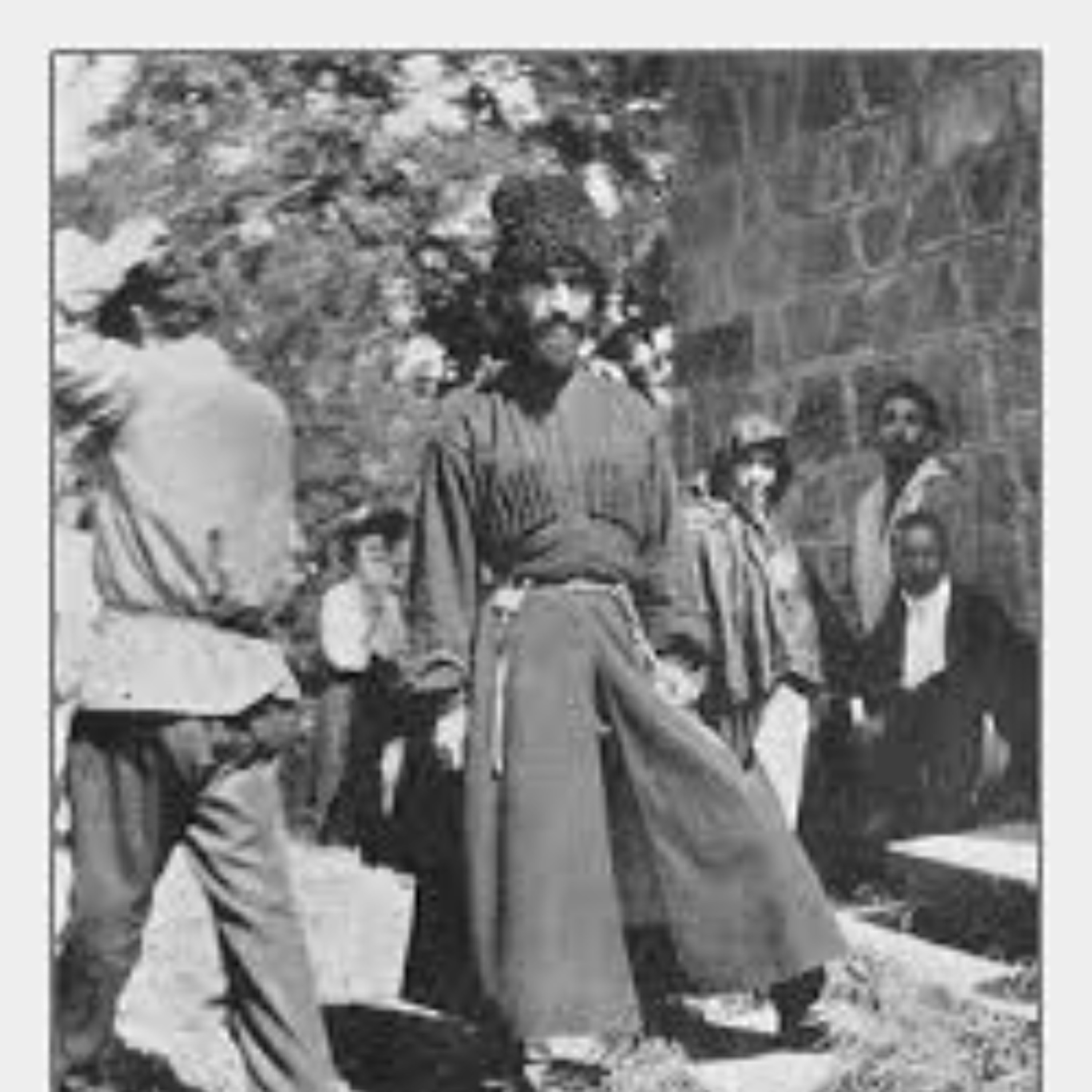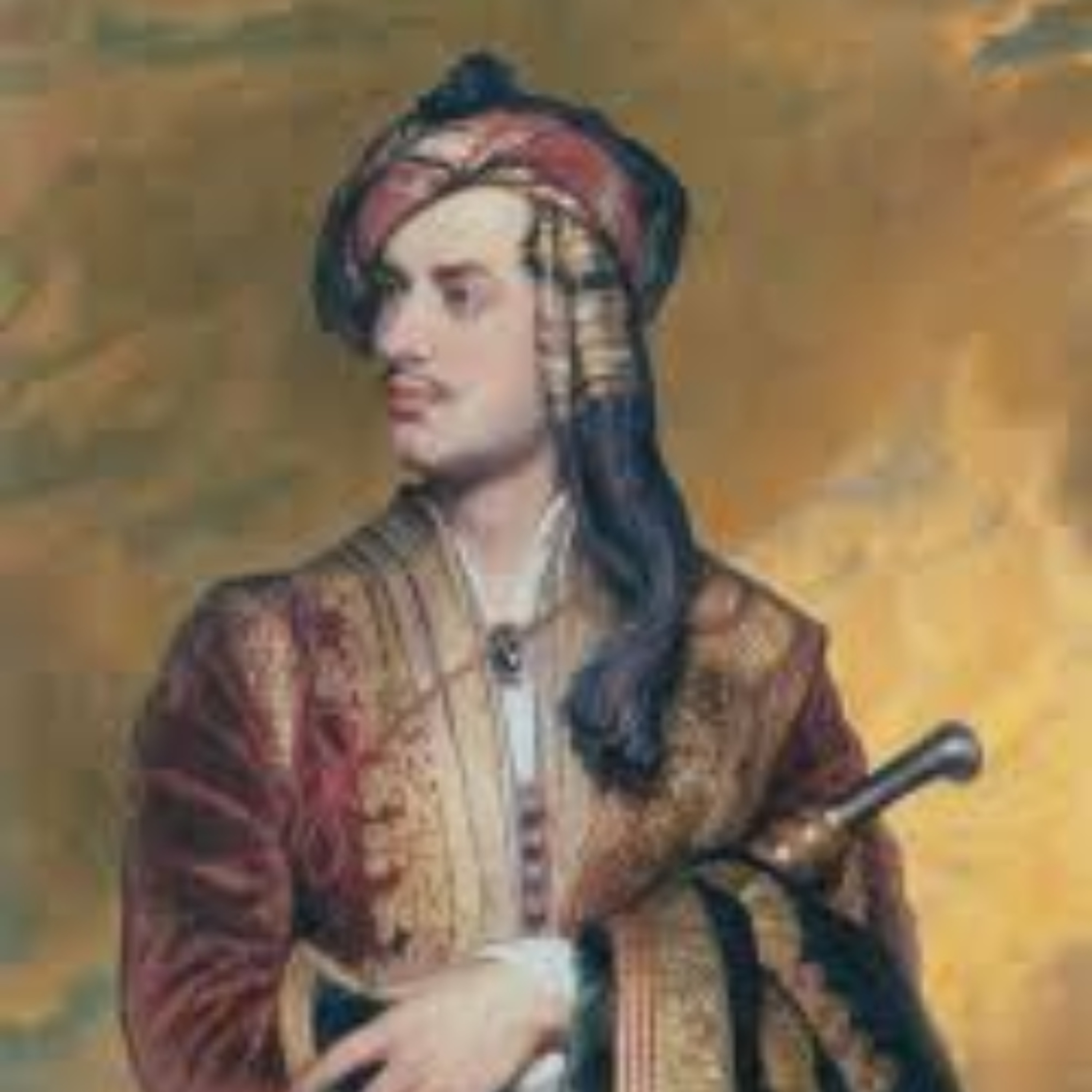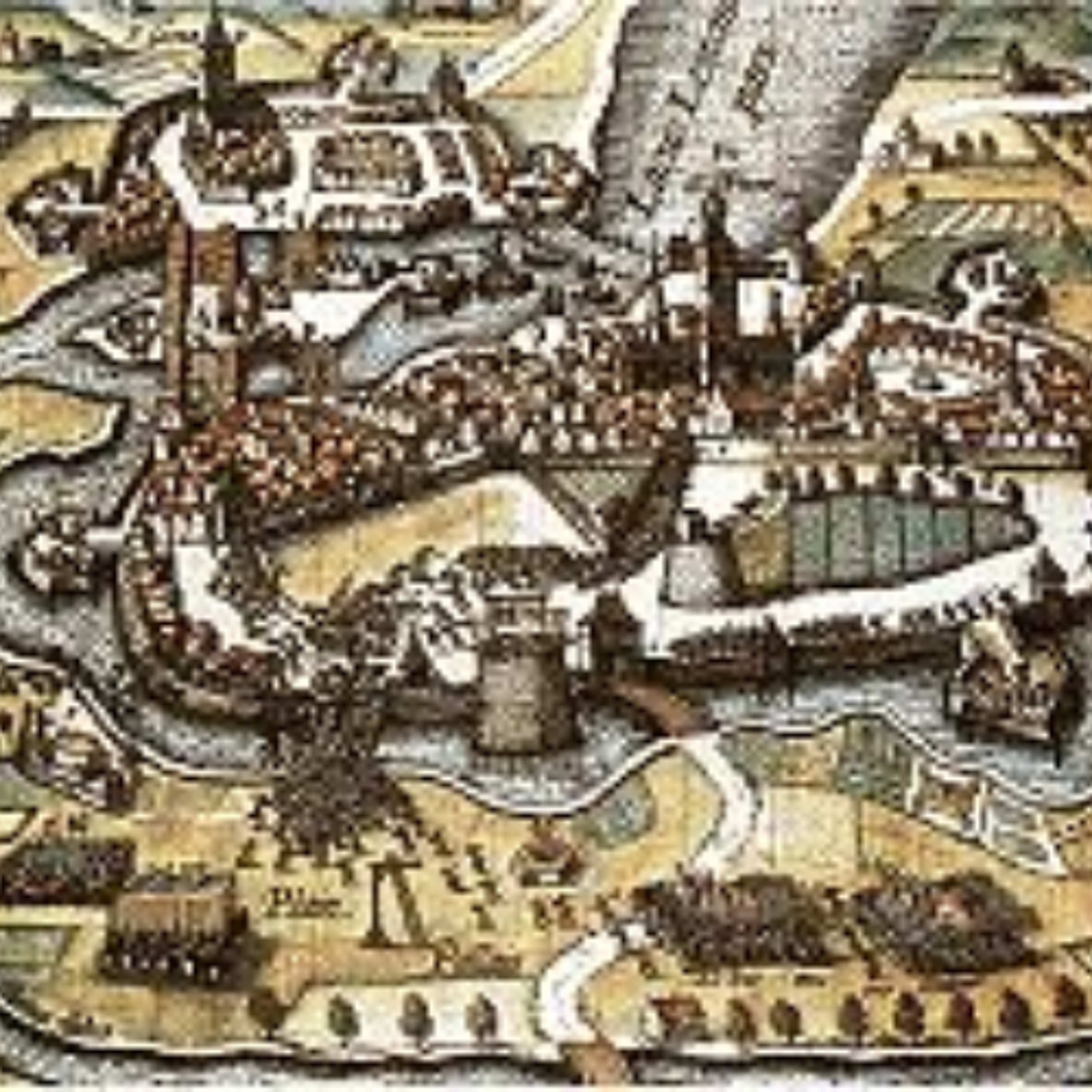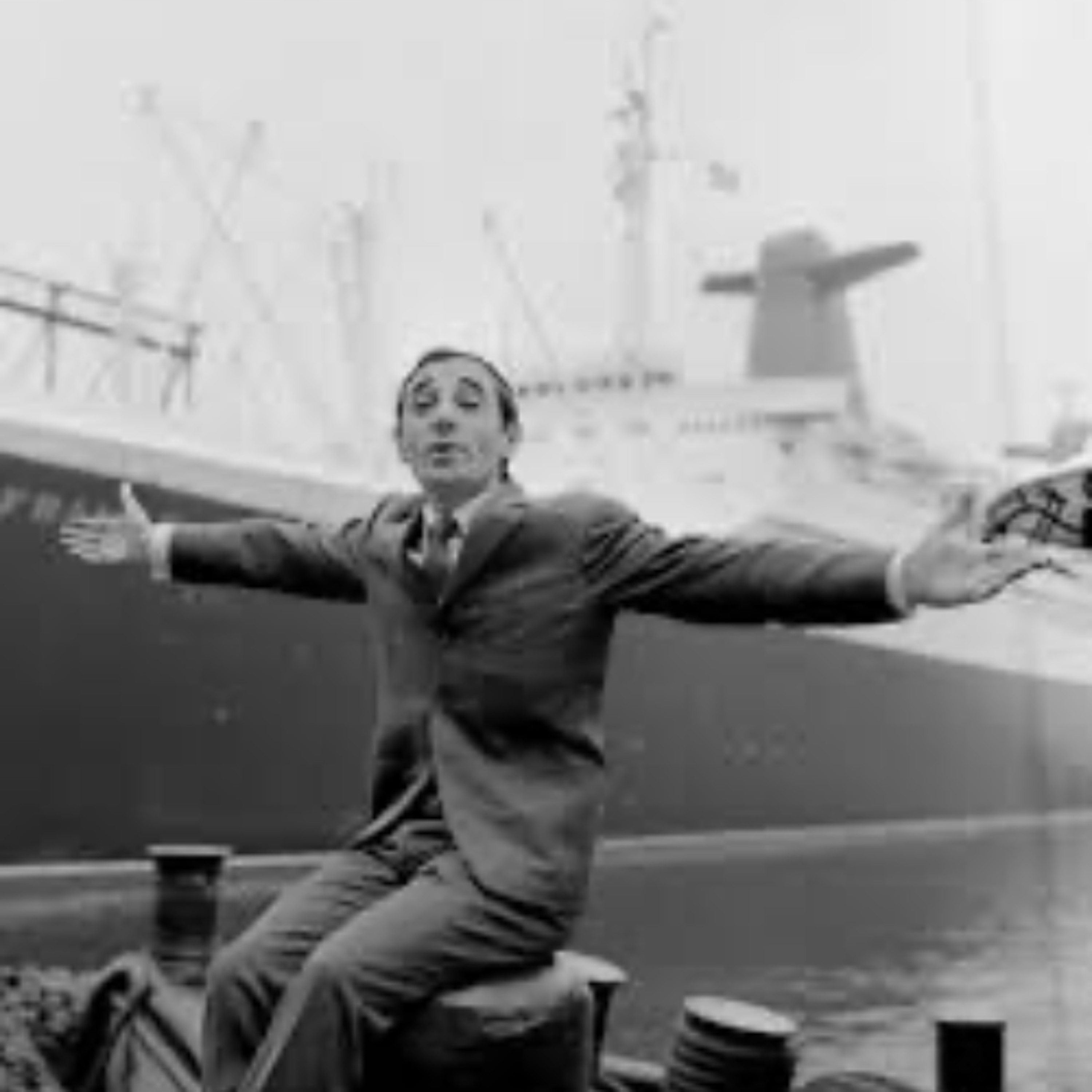*PREVIEW* The History of Georgia and the Anarchist Republic of Guria: Part 2
https://www.patreon.com/posts/141288475?pr=true
Press play and read along
Transcript
Speaker 1 Hello, uh, you are listening to Lions Led by Donkeys, and it's Omar Sosoria again,
Speaker 1 a Georgian leftist speaking about leftist stuff here. Uh, our leftist history, let's say.
Speaker 1 Yeah, I want to thank the hosts of this beautiful show, Joe and Annie.
Speaker 1 And uh, we were I was telling the story of Kuria, Republic of Free People of Kuria, let's say we were in the middle of really interesting story.
Speaker 3 Yeah, it just started picking up, you know, a priest got shot, a priest who was a traitor, you know. Georgians yet again trusted a priest, shouldn't have done that.
Speaker 2 Another thing that Georgians and Irish people have in common, they learn not to trust the local priests.
Speaker 1 No.
Speaker 3
They just don't learn anymore. I mean, speaking of, you know, just merge again the history and the current times of both of our countries here.
Like the
Speaker 3 earlier, Omar, you mentioned in the other episode that
Speaker 3 Armenians are less religious in those terms than Georgians in terms of when it comes to to believing in the church
Speaker 3 as an institution.
Speaker 3 Things are a little bit changing in Armenia, which is kind of a reflection of our political reality at the moment when, you know, we don't like the current government, we don't like the older regimes.
Speaker 3 Now the current government is going after the church, like, I mean, also don't like the opposition. Yeah, that's what I meant by former regimes, because that's what the opposition is.
Speaker 3 And currently going after the church, and there's this whole talk and conversation, just discourse in general that, oh, but like the church is about tradition.
Speaker 3 The Armenian church has spent less time being a state than Georgia has. And a lot of those times, like, priests were kind of the leaders, the political leaders, the organizers, the management.
Speaker 2 Cultural touch point as well after the Reformation of the First Republic after the genocide.
Speaker 3 Yeah, so when we got, I think this was around 2023,
Speaker 3 the movement that was led by a priest, that was shocking to me. Yeah.
Speaker 2 Because
Speaker 3 like, I wouldn't believe that a priest could get even 10 people that are not part of a church, but they did gather people who aren't. And now, kind of currently, having one prime minister who is not,
Speaker 3 I mean, his popularity has declined massively, you know, over the years. And having our prime minister launching this campaign against the church is bringing more people on the church's side.
Speaker 3 So, that's just an interesting thing.
Speaker 1 Is it bringing people in the church or it's like railing people against the government because it can be two different things.
Speaker 2 Yeah, I think we're what we're seeing is
Speaker 2 an example of what we often say on the show is the greater unifying theory of fuck that guy. Yeah, yeah.
Speaker 2 And that is especially because like that priest movement died out quite quickly and the people siding up with like being on the side of the priest.
Speaker 2 It's not like they're starting to go to service or anything. No, no.
Speaker 2 There's like, oh, finally someone that isn't completely insane, asterisks, I do think the priest is unwell, also in prison for attempting to violently overthrow the government, allegedly.
Speaker 2 But they saw a rallying point who happened to be a priest. Yes, that is true.
Speaker 3 I think there is a little bit of, yeah, it's not joining the church. church's movement against the government, which church also has an anti-government campaign,
Speaker 2 whether they like to admit it or not.
Speaker 3 But like, it's not not necessarily them oh all of a sudden we are complete believers in church we are religious again no it's more like you know this is the um for the sake of balancing the scale you know the church could be potentially a little bit more popular than the other opposition that we have in hand like the church is kind of seen in for many people in this scenario as kind of that ultimate opposition, the one institution that is standing against the government, which is kind of, yeah, it is a bit different.
Speaker 3 It's not that kind of belief you have in Georgia when, you know, if patriarchs say something, it's a bit different and it's really different.
Speaker 1
Our church, every time the government changed in Georgia, and it happened more than once in the past 30 years, the church always was always pro-government. Always.
There was no exception.
Speaker 1 I mean, new government came and the church was pro-the government.
Speaker 1 Yeah, so I mean, I'm a little bit hopeful for today's generation, mainly in the big cities, they see through this shit to our church, and they are always trying to play on the both sides.
Speaker 1 In the end, I don't think you can really compare Georgia and Armenian churches. No, no.
Speaker 1 Because, like, Armenian church, at least, CTIA has some independency, but our church, like, main, I mean, if today a Satan, not Ugul Ratanza Satan, but the Satan Satan would come
Speaker 1 as a ruler of Georgia, the church would be pro-Satan.
Speaker 1 I can guarantee you that. Yeah, so yeah.
Speaker 2 I think a pretty good comparison could be made to why Armenians rally around that
Speaker 2 priest is very similar to why the Gurian revolutionary shot the priest. Yes.
Speaker 2 And that is because not because he's a priest, but because what he represents in Guria's story is like, well, he's an agent of the bourgeoisie. He's an agent of the landlords.
Speaker 2 Like he's got to fucking go.
Speaker 2 He's working with the, he's working with the empire. Meanwhile, in Armenia, it's just like, well, this guy isn't connected to the opposition, even though he was.
Speaker 2
And, you know, he isn't a fan of the prime minister. Yeah.
Okay. That guy could be a used car salesman.
People would still be behind it.
Speaker 1 Yeah, I absolutely agree with you.
Speaker 2 Yeah, man.
Speaker 3 That is very true.
Speaker 3 And part of the independence of the church in Armenia comes from its power in the diaspora and all the church institutions that Armenia has outside of Armenia, which is exactly what the government of Armenia is now really, really trying to take away from them.
Speaker 3 I don't think they will necessarily succeed, but there is already some friction.
Speaker 3 So, you know, maybe one day we'll see as things go, and maybe we'll do an episode about that because that's quite interesting.
Speaker 2 I look forward to the next elections next year where the prime minister wins again.
Speaker 2 Absolutely.
Speaker 3 I have no doubt that it's not a good question.
Speaker 2 And I'm not saying it's going to be not free and fair. No,
Speaker 2 I think it'll be a completely free and fair election.
Speaker 1 By a landslide, it will be an easy win for him.
Speaker 2 I mean, I don't think it'll be a landslide. I don't think it'll be a landslide.
Speaker 2 I think civil contract contract will still be able to form a majority in parliament just because, like, again, the voting that is available, the options available are dog shit. Yeah.
Speaker 2 And everyone knows that the opposition would be worse. And again, like, the priest had a lot of baggage as well because, like, in our modern day, I think we did an episode on this.
Speaker 2 He couldn't even be prime minister because he was a dual citizen that he lied about. Like,
Speaker 2
he was just lying. Yeah, he was just lying the entire time.
Oh, my God.
Speaker 2 Underlying to Armenians why you cannot trust the priest.
Speaker 2 Anyway,
Speaker 3 back to our traitor priest.
Speaker 1 Yeah, I mean, traitor priest has been like long shot and dead, but the things in Guria were in just already in motion. And by 1904, Guria's revolution had gained international attention.
Speaker 1 Like famous revolutionary Viktor Taratuta visited the region and he was astonished by what he saw. He wrote, Everything is controlled by the revolutionary committee.
Speaker 1 The police either do not exist or hold no power over the people. Guria became so popular that even Leotol Stoy wrote a letter to Gurians.
Speaker 1 In the letter, where Tolstoy referred to himself as an old man who is probably unknown to Gurians.
Speaker 1 And one point he says, If possible, tell them, Kurians, how great my joy was when I learned that what I have been thinking and writing about for years, what so-called wise don't understand, has been realized by thousands of people on their own, with their own minds and consciousness.
Speaker 1 Yeah, I hear myself in the line that I love Tolstoy. And yeah, this guy was amazing.
Speaker 3 It's quite powerful, actually, what he said, because the first thing that he said, I'm probably unknown to these people. And that also was part of the reality back in the day, right?
Speaker 3 Like, who gets to be.
Speaker 3 I know that Gurians have been quite literate.
Speaker 1
Yeah, I will speak about this. They were quite literate because, like, there were many, many libraries in Guria.
One of the main reasons for uprising was closure of the libraries.
Speaker 1 They hated them, hated this idea, this event, because libraries were not just books there, there were journals as well. So, they were quite literal because when they read this, this letter was
Speaker 1 read out loud many times to many groups of Gurias.
Speaker 1 And the story goes that the Gurias love the letter, but at least on one occasion, when it was read aloud, some of them objected, saying, We know who Tolstoy is. We read his.
Speaker 3 Yeah, that's what I was going to say.
Speaker 1 They're like, No, we know we know Tolstoy is, yeah, we read his fables to our children.
Speaker 2 That's what was said, yeah.
Speaker 3 Yeah, but it wouldn't be uncommon for the time for many, many people in the region to not even be able to read or have access to books in general.
Speaker 2 Yeah, and it wouldn't be it's not that surprising that Tolstoy writing about a rural population is probably like, These people must be illiterate. Yeah.
Speaker 2 Tolstoy is still
Speaker 3
the imperialism is still there, you know, somewhere. So I do understand.
I mean, I am uh I understand the objection there, of course. Yeah, but no, we know who this guy is.
Speaker 2 It would be like offensive. Like
Speaker 2 imagine if someone imagine if I wrote a book and like wanted to distribute it in George and I was like, I don't know if you guys could read, but if you do,
Speaker 2 it's a bit fucked up. Yeah, yeah, yeah.
Speaker 1 But anyway, Tolstoy was really loved here. He was quite, I mean, this was the era of Tolstoy when he was like really anti-imperialist.
Speaker 1 And his books were even prohibited in the end, if I'm not mistaken. These books were even prohibited in despite the time of Russian history.
Speaker 1 So, but he was really like, I don't know how he knew about everything that was happening in Russia and in like parts of the Russian Empire, but he was really, really active.





